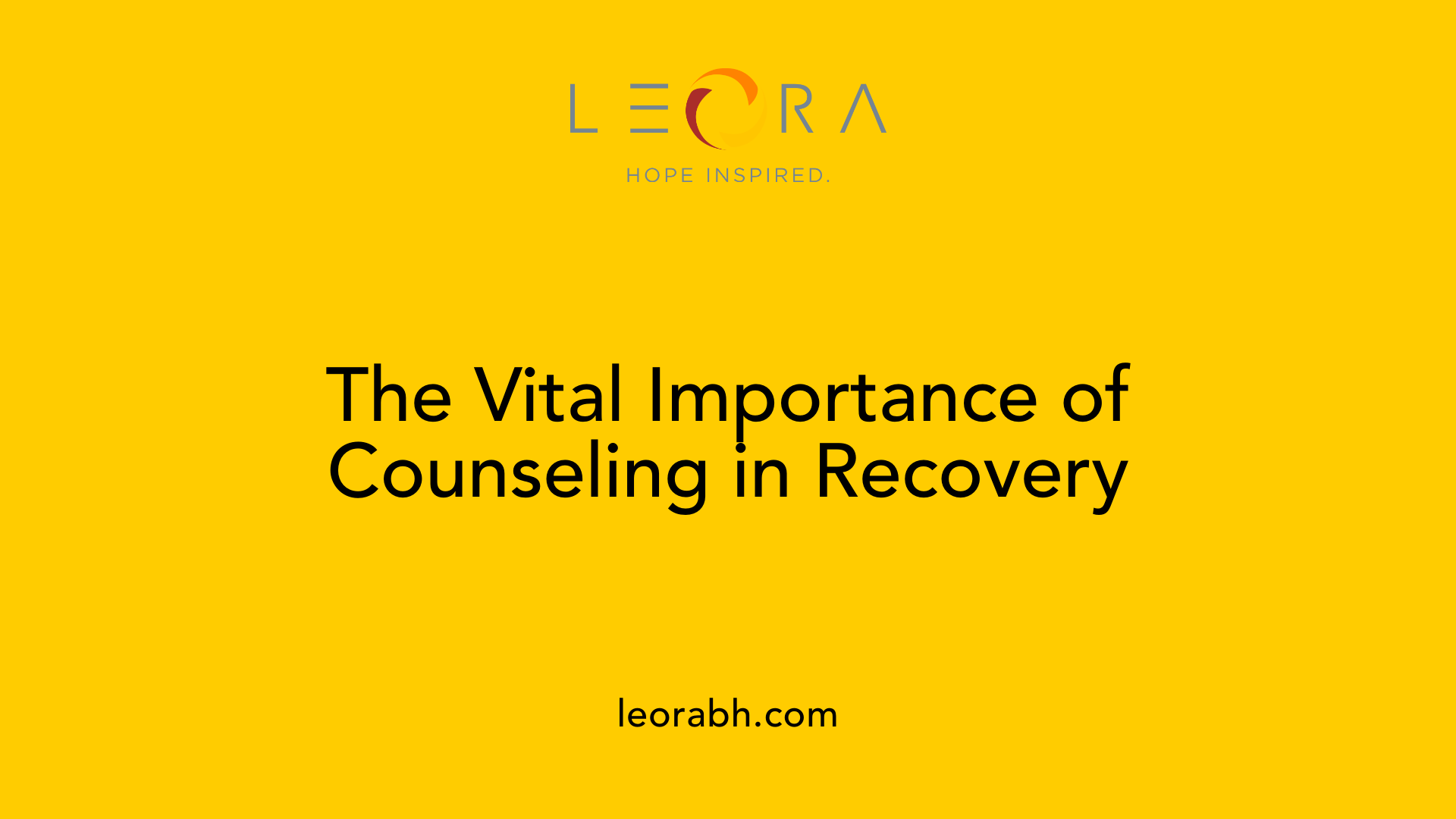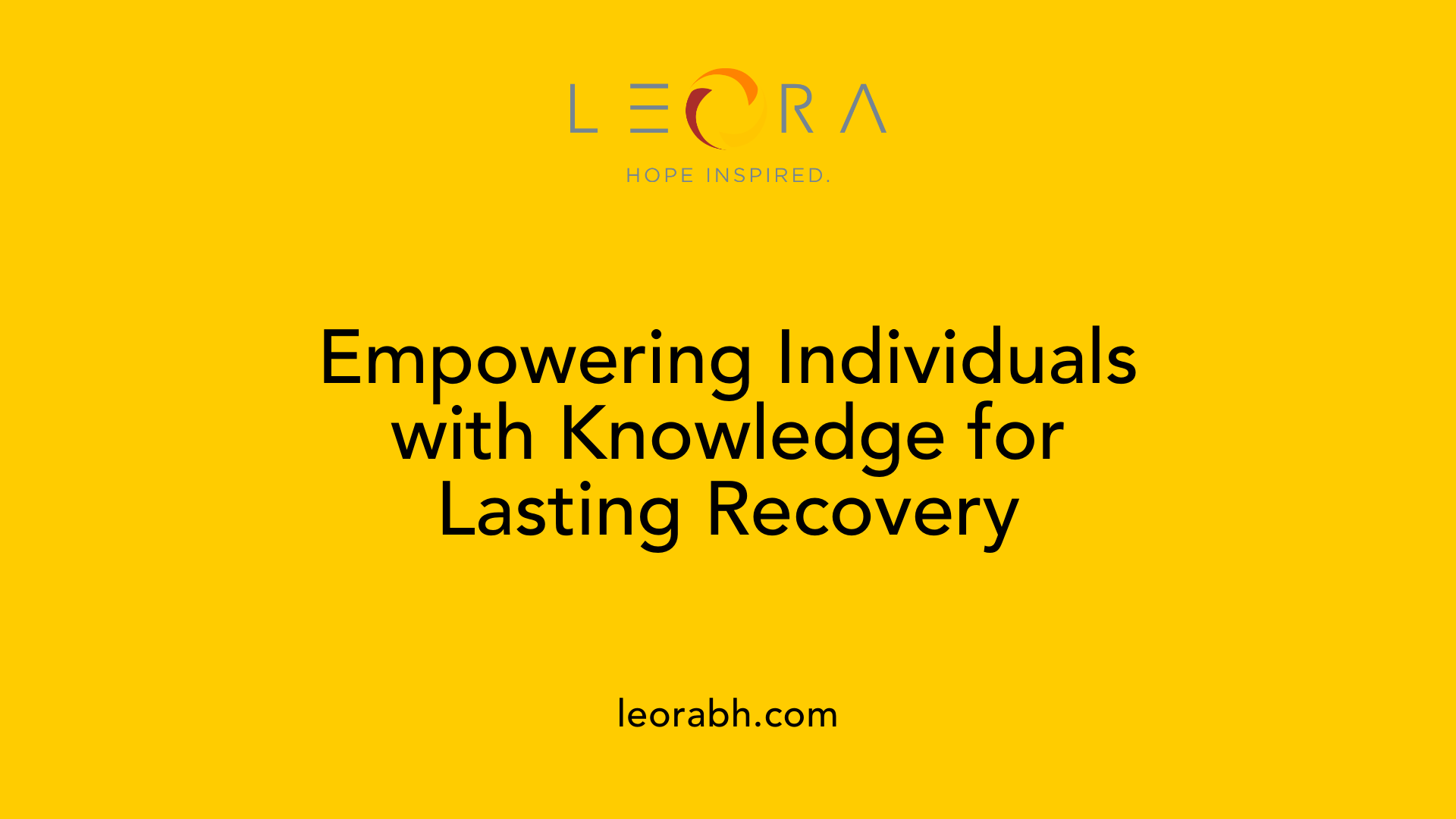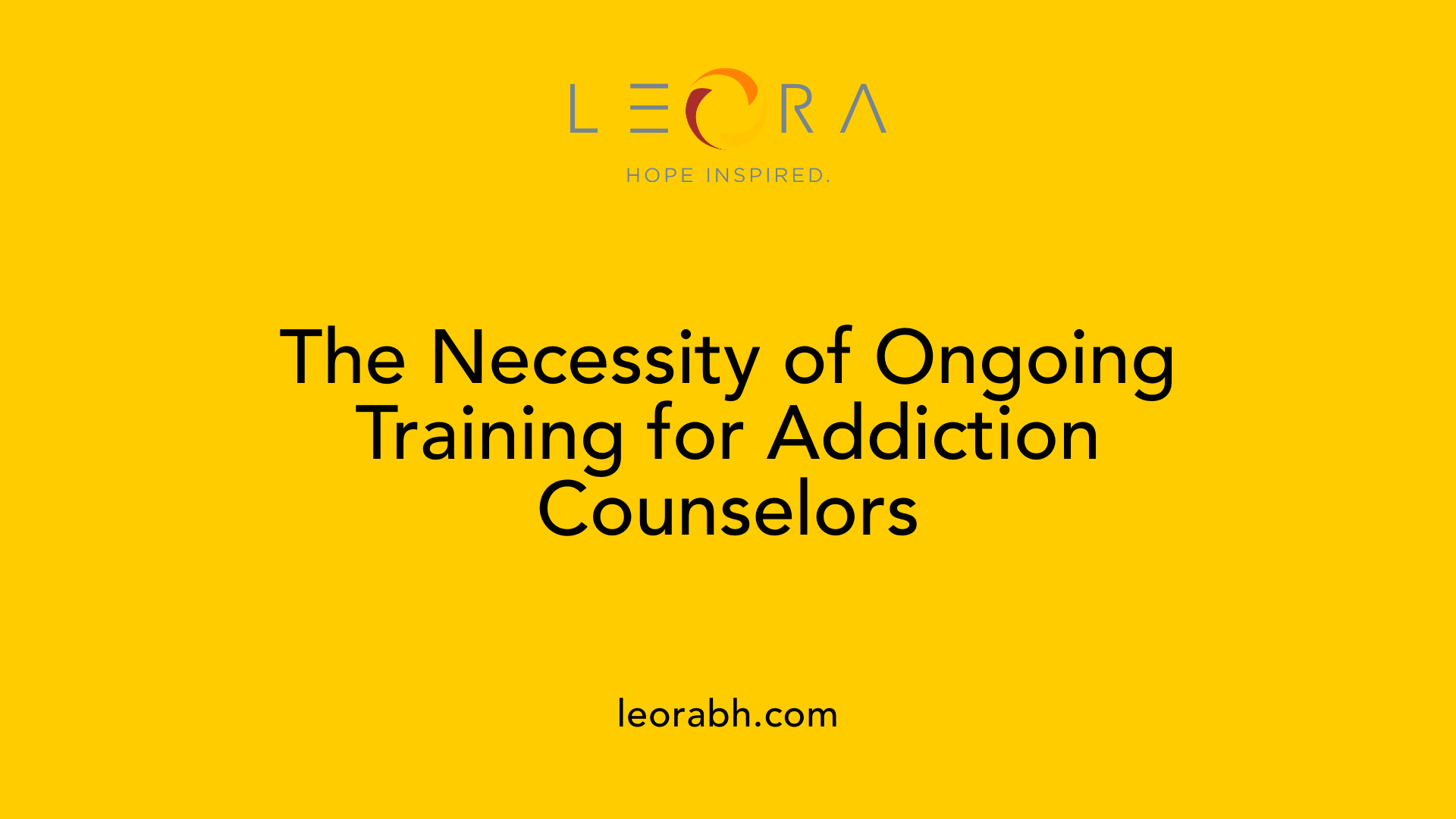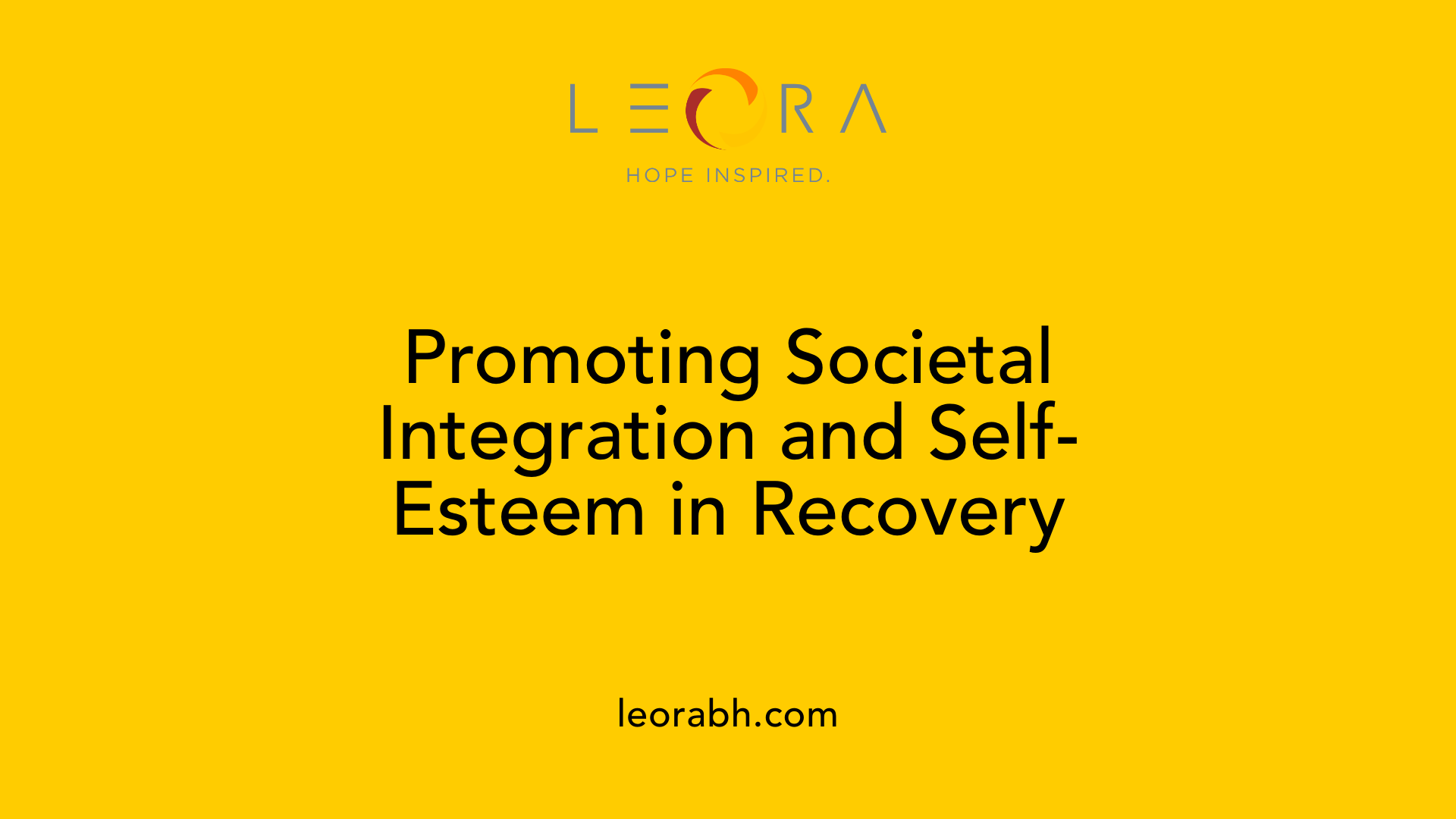The role of education and counseling in addiction recovery
Empowering Recovery Through Education and Counseling
Introduction to Recovery Approaches
As the journey to overcome addiction is challenging and multifaceted, incorporating education and counseling into recovery processes has shown profound benefits. These components provide the knowledge and emotional support necessary for recovering individuals to rebuild their lives, prevent relapse, and achieve long-term sobriety. This article will explore the pivotal roles that education and counseling play in addiction recovery, illuminating their significance in modern rehabilitation practices.
The Critical Role of Counseling in Addiction Recovery

What is the role of counseling in the recovery process?
Counseling plays a vital role in the recovery process by providing a safe and supportive environment for individuals to explore their thoughts and feelings related to addiction. It helps identify underlying issues and situations that contribute to substance use, allowing for a deeper understanding of the individual’s circumstances.
Moreover, counseling offers tools and strategies, such as Cognitive Behavioral Therapy (CBT), to replace harmful thought patterns and develop healthier coping mechanisms. This approach is crucial, as studies show that individuals receiving counseling during treatment are less likely to experience a relapse compared to those who do not.
Addressing Underlying Issues Through Therapy
Counselors also facilitate discussions around underlying issues such as trauma, anxiety, and depression. By addressing these factors, individuals learn how to manage their emotional health more effectively, leading to improved resilience against the pressures that may lead to substance use.
Family dynamics are often examined, with counselors educating family members about addiction and fostering open communication. This holistic approach not only aids the individual in recovery but also strengthens the familial support system.
Counseling Strategies Supporting Sobriety
Counseling employs various strategies like role-playing, motivational interviewing, and aftercare planning, all designed to support long-term sobriety. These techniques help individuals recognize their triggers, cope with cravings, and establish a structured recovery environment.
Additionally, participatory elements like group therapy foster a sense of community, offering individuals a support network essential for ongoing recovery efforts and accountability.
Through these multifaceted counseling strategies, individuals are empowered to set achievable goals, enhancing their coping capabilities and emotional healing, ultimately promoting a higher success rate in addiction recovery.
Enhancing Recovery Through Educational Programs

How do educational programs enhance recovery processes in addiction treatment?
Educational programs play a vital role in enriching the recovery processes for individuals undergoing treatment for addiction. By equipping them with essential knowledge about addiction and relapse prevention, these programs empower clients to make informed decisions.
- Knowledge Acquisition: Understanding the biological and psychological aspects of addiction helps individuals recognize their triggers and develop coping strategies.
- Skills Development: Programs that incorporate evidence-based strategies, like Cognitive Behavioral Therapy (CBT) and Motivational Interviewing (MI), enable clients to replace negative thought patterns with healthier, constructive approaches.
- Community Support: Participation in group therapy fosters solidarity and mutual support, allowing clients to share experiences and learn from each other in a safe environment.
The integration of personalized learning plans ensures that each client's unique needs are met, fostering relevance and engagement in the educational process. With a focus on practical skills, such as communication and stress management, clients are better equipped to reintegrate into society and maintain their sobriety.
| Aspect of Educational Programs | Description | Benefits |
|---|---|---|
| Knowledge Acquisition | Instruction about addiction risks and prevention | Helps in recognizing triggers |
| Skills Development | Techniques like CBT and MI aid in thought restructuring | Builds resilience and coping strategies |
| Community Support | Group therapy and peer interactions | Enhances motivation and connection |
In summary, educational initiatives are crucial for empowering individuals on their path to recovery, ultimately promoting a sustainable, drug-free lifestyle.
Training: The Pillar of Effective Addiction Counseling

Why is training significant for addiction counselors?
Training is significant for addiction counselors because it equips them with the necessary skills to differentiate between symptoms of substance use and mental health issues, which is crucial for accurate diagnosis. It enhances their ability to implement effective counseling techniques such as cognitive behavioral therapy (CBT) and dialectical behavior therapy (DBT), which are essential for guiding clients through recovery.
Moreover, ongoing education ensures that counselors stay updated on the latest treatment modalities and ethical practices, allowing them to provide tailored, effective care. This continuous training is vital, as it prepares them to handle diverse situations and challenges that may arise in therapy.
Impacts of ongoing education
Ongoing education supports counselors in managing group dynamics effectively, promoting client engagement and positive outcomes. By understanding the complexities of addiction and recovery systems, counselors can better support individuals at every stage of their journey. Additionally, training reinforces the importance of building a therapeutic alliance with clients, characterized by trust and collaboration, which is essential for successful treatment outcomes.
Skills enhanced through counselor training
The training process enhances various skills among counselors, including:
- Active Listening: Helps counselors understand clients' perspectives and needs.
- Crisis Management: Prepares counselors to handle emergencies related to addiction.
- Communication: Equips counselors with techniques to effectively convey empathy and support.
- Coping Skills Development: Enables counselors to teach clients effective coping strategies.
In conclusion, comprehensive training is vital for addiction counselors, ultimately shaping informed and effective professionals capable of fostering recovery.
Educational Interventions: Fostering Resilience and Knowledge
Workshops and Individual Counseling
At Refresh Recovery Centers, educational interventions play a pivotal role in the recovery process. The program incorporates workshops and individual counseling sessions, enabling clients to delve into the intricacies of addiction. These sessions aim to enhance clients' understanding of their condition and equip them with valuable relapse prevention techniques.
Addressing Stigma Through Education
One of the key aspects of these educational initiatives is their ability to combat the stigma associated with addiction. By providing accurate information and fostering empathy within communities, Refresh Recovery Centers helps reshape perceptions of addiction. The goal is to create a supportive environment where individuals feel empowered to seek help without fear of judgment.
Building Critical Thinking and Decision-Making Skills
Moreover, the development of critical thinking skills through these educational strategies is essential. Clients learn to analyze their own situations and make informed decisions that promote healthier lifestyles. This focus not only aids in their recovery journey but also prepares them for long-term sobriety and resilience against life’s challenges.
| Component | Description | Outcome |
|---|---|---|
| Workshops | Interactive sessions covering aspects of addiction, self-care | Enhanced understanding and skills for recovery |
| Individual Counseling | Tailored support focusing on personal needs and struggles | Improved decision-making and coping strategies |
| Stigma Education | Providing accurate information to reduce stigma | Creation of an empathetic and supportive community |
Systemic Improvements Through Education in Addiction Treatment
Core role of educational strategies
Education is fundamental in empowering individuals on their recovery journeys. It enhances understanding of addiction, promotes informed decision-making, and fosters critical thinking skills that enable healthier choices. At Refresh Recovery Centers, educational interventions encompass individual counseling and interactive workshops covering essential topics, including relapse prevention techniques and stress management strategies. Personalized learning plans ensure that education is relevant and engaging, building resilience and coping skills critical for maintaining sobriety.
Integration into healthcare systems
Current healthcare systems often fall short in providing adequate educational resources in addiction treatment. There’s a growing need for integrating structured educational programs, which focus on emotional regulation and lifestyle management rather than solely therapeutic interventions. By prioritizing education as a core component of recovery models, healthcare can address addiction comprehensively, facilitating a deeper understanding of this chronic condition.
Public advocacy for educational initiatives
Advocacy for educational initiatives is essential in transforming societal perceptions of addiction. Educating the public about the facts of addiction reduces stigma and cultivates empathy, fostering supportive environments for those in recovery. Collaborative efforts among policymakers, educators, and community leaders can enhance the effectiveness of these initiatives, ultimately leading to improved outcomes for individuals confronting addiction.
Counseling Techniques in the Recovery Journey
Development of Coping Mechanisms and Support Systems
Counseling plays a vital role in helping individuals develop essential coping mechanisms needed for long-term recovery. This process includes identifying triggers that may lead to substance use and establishing effective strategies to manage these urges. Clients are encouraged to cultivate a solid support system, which is crucial in maintaining motivation and accountability throughout their recovery journey.
Techniques like CBT and DBT
Cognitive Behavioral Therapy (CBT) and Dialectical Behavior Therapy (DBT) are two frequently utilized counseling techniques in addiction treatment. CBT helps clients understand and change negative thought patterns that contribute to their addictive behaviors. Meanwhile, DBT focuses on emotional regulation and mindfulness, equipping individuals with skills to handle emotional distress without resorting to substances. These evidence-based approaches foster resilience and enhance self-awareness in clients.
Role of Family and Peer Support
Family involvement is critical in the recovery process. Counselors educate family members about addiction, restoring communication within relationships, and enhancing supportive dynamics. Peer support, including groups like Narcotics Anonymous, reinforces the sense of community and shared experience, offering encouragement and understanding. Together, these elements create a comprehensive support network that bolsters recovery efforts.
Societal Integration and Self-Esteem: Educational Outcomes

Educational programs for societal reintegration
Educational initiatives play a pivotal role in helping individuals reintegrate into society after recovery. Programs that focus on life skills, job readiness, and social interactions equip clients with the necessary tools to thrive. By emphasizing real-world skills like resume writing and interview preparation, these programs foster confidence and readiness for employment.
Self-esteem improvement through education
Education significantly boosts self-esteem in recovering individuals. As clients acquire new knowledge and skills, their sense of accomplishment grows. This, in turn, combats the negative self-image often associated with addiction, transforming it into a positive self-view rooted in achievement and capability.
Role of structured environments in recovery
Structured environments, such as educational institutions, provide essential support during recovery. They promote accountability, social support, and positive interactions, reducing the likelihood of relapse. Schools not only offer an educational framework but also facilitate community connections, creating a supportive network crucial for sustained recovery.
Building Community Support and Reducing Stigma Through Education

Community Engagement in Educational Programs
Engaging the community in educational programs is crucial for creating a supportive environment for individuals in recovery. Initiatives can include workshops that emphasize addiction's multifaceted impact and the importance of empathy. Schools and local organizations can collaborate to provide resources, fostering a network of support that encourages open dialogue about addiction and its treatment options, ensuring that help is accessible to those in need.
Reducing Stigma and Promoting Empathy
Education plays a key role in reducing the stigma associated with addiction. By informing communities with accurate information, misconceptions can be challenged, fostering a culture of understanding and compassion. This shift helps individuals feel more comfortable seeking help, reinforcing that addiction is a health issue rather than a moral failing. Support groups and community forums can also enhance empathy among peers, nurturing a caring environment for those in recovery.
Transformative Public Discussions on Addiction
Using education as a catalyst for transformation can reshape public discussions about addiction. These discussions can highlight recovery success stories, making it clear that recovery is possible. Encouraging community members to share their experiences can dismantle stereotypes and foster a communal approach to addressing addiction, emphasizing collaboration among families, peers, and professionals in supporting individuals on their recovery journey.
| Element | Impact on Community Support | Potential Educational Strategies |
|---|---|---|
| Community Engagement | Fosters a supportive network | Workshops, local outreach programs |
| Reducing Stigma | Facilitates understanding of addiction | Public information campaigns, community forums |
| Transformative Discussions | Creates a culture of empathy and openness | Sharing success stories, inclusive dialogues |
Conclusion: Future Directions in Education and Counseling for Addiction Recovery
Incorporating education and counseling within the framework of addiction recovery not only enriches the treatment process but also ensures long-term success for recovering individuals. As healthcare systems and community-led initiatives prioritize educational interventions and robust counseling protocols, the potential for transformed lives and reduced relapse rates increases substantially. Moving forward, it will be essential to continue advocating for these pivotal elements, setting a new standard in addiction rehabilitation that embraces knowledge, empathy, and comprehensive support.
References
- The Role of Education in Substance Abuse Treatment
- The Role of the Substance Abuse Counselor in Addiction Recovery
- #63 Inadequate Attention to The Role of Education and Learning in ...
- Benefits of School for Enhancing Addiction Recovery
- The School Counselor's Role in Substance Abuse Prevention
- What Role Does Continuing Education Play in Combating ... - AIHCP
- What Is the Role of the Counselor in Addiction Recovery?
- [PDF] The role of education in developing recovery capital in ... - Drugs.ie
- The Role Of Counseling In Preventing Drug Addiction
- The power of knowledge: why addiction education matters
Find Your Inner Light
Related Articles
Contact Us
Leora Behavioral Health offers a comprehensive addiction treatment programs to help you get your life back on track.
Our trained professionals will work with you to develop a personalized treatment plan that meets your unique needs. If you or someone you know is struggling with addiction, reach out to Leora Behavioral Health today.


.svg)





.svg)
.svg)
.svg)
.svg)